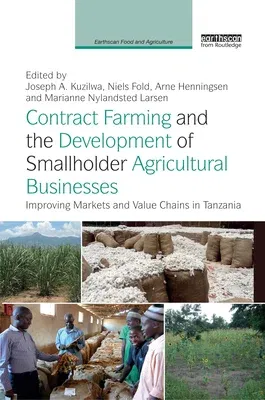Contract Farming and the Development of Smallholder Agricultural Businesses: Improving Markets and Value Chains in TanzaniaPaperback, 8 August 2019

Qty
1
Turbo
Ships in 2 - 3 days
Only 4 left
Free Delivery
Cash on Delivery
15 Days
Free Returns
Secure Checkout

Part of Series
Earthscan Food and Agriculture
Print Length
240 pages
Language
English
Publisher
Routledge
Date Published
8 Aug 2019
ISBN-10
036735134X
ISBN-13
9780367351342
Description
Product Details
Book Format:
Paperback
Country of Origin:
US
Date Published:
8 August 2019
Dimensions:
24.89 x
15.24 x
1.27 cm
Genre:
Ecology
ISBN-10:
036735134X
ISBN-13:
9780367351342
Language:
English
Location:
Oxford
Pages:
240
Publisher:
Weight:
362.87 gm